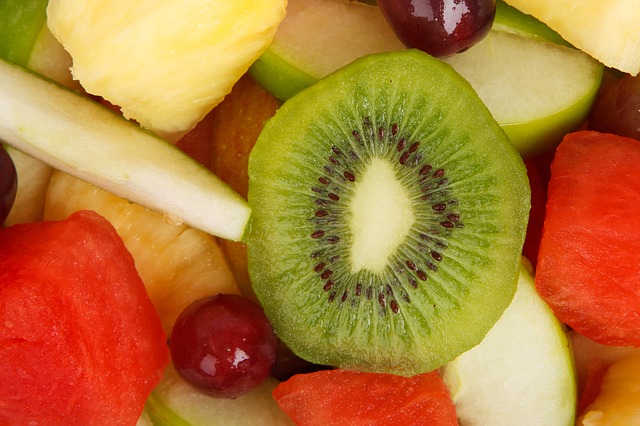I’ve always been struck by the random memories that somehow seem to stick out in our minds, no matter how insignificant or random they appear to be.
And although we’ve not thought of them for months—years even—the slightest sound or smell or color can spark them back into our minds.
I remember being around the age of six and sitting at my grandparents’ dining room table with my grandfather. He had just collected me from school, and we were both eager for a light snack. Between us, on a plate, lay a kiwi.
“It’s hairy,” I told him, and he smiled. “How do we eat it?”
“Well, we do it like this,” he said, picking up a knife and cutting it in half to reveal juicy green matter. He then showed me how to scoop it out, tracing the spoon along the inner edge of the skin. Together we ate around five kiwis that day, and suddenly I had a new favorite fruit.
Today, 15 years later, I am sitting on a small cushion, on the floor of my home in India. Through the open front door, I see a woman walking by in a red and orange sari—she has long hair, growing past her bum. I hear rickshaws gurgling in the distance, and two men in the street intensely speaking in Kannada. Who knows what they could be going on about.
But as I sit here in this foreign place, I am eating a kiwi. And I’m thinking of my grandfather who passed away years back. I’m not sure if I will ever be able to eat one without his presence floating nearby. So this fruit seems to now be a trigger for my memory of my grandfather—a memory that refuses to fade as long as its catalyst, this sweet and hairy fruit, exists.
I find this incredibly fascinating.
How and why, does this happen—a flashback to the past, while eating a certain food or listening to a certain song?
I decided to do some research.
The word “cue” came up numerous times. That sweatshirt your ex-partner gave you—the one hanging in your closet—is called a cue. The way you look at it or smell it and are washed over with the memory of snuggling up on the couch together is dubbed “cue recall.”
The most important aspect in understanding this way in which our minds work is this piece of information—these are all emotional memories. They were intimate or transformative, in one way or another, and when we experience something like this, we instinctively want to remember it—hence creating a cue.
Now, what can we do if we no longer desire this cue recall? The easiest method is avoidance. If I don’t eat kiwi, the memory of my grandfather and myself on that afternoon does not arise.
But sometimes we can’t avert a cue. In this scenario, we can attempt to assign the cue to a different memory, overriding the unwanted one. Let’s say you have a baseball that your father gifted to you, and it undesirably reminds you of him. By taking your daughter to the park and teaching her to play baseball, you can create a new emotional memory to be kindled when you hold a baseball in your hands.
So there we have it. Those small moments of nostalgia are not random, and they happen systematically. If they are pleasant, enjoy them. If they’re not so congenial, some reprogramming could be a solution. It’s not simple, but it is possible.
.
Relephant:
The Memory Drawer.
Author: Jenna Meyer
Editor: Yoli Ramazzina
Photo: Pixabay







Read 0 comments and reply